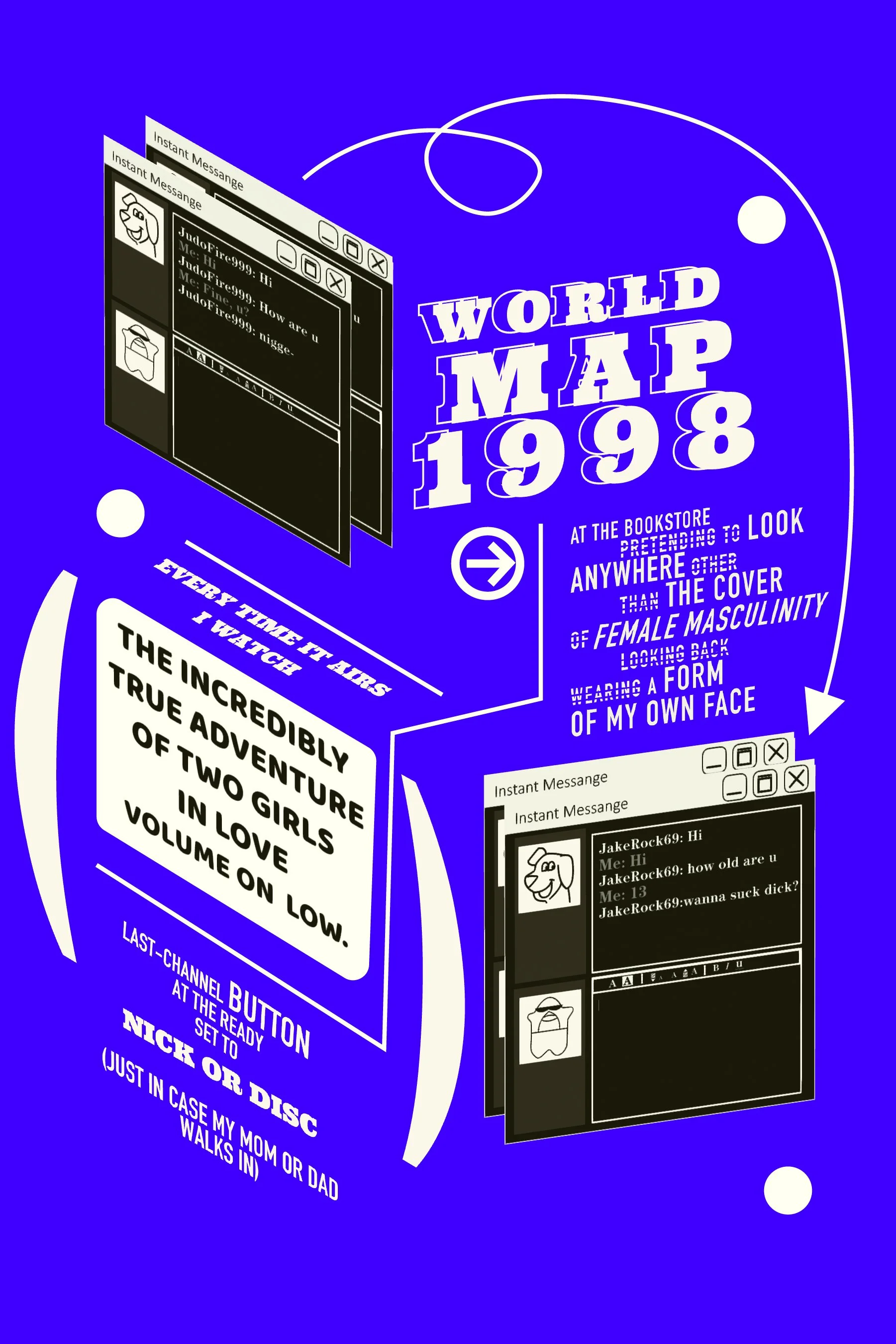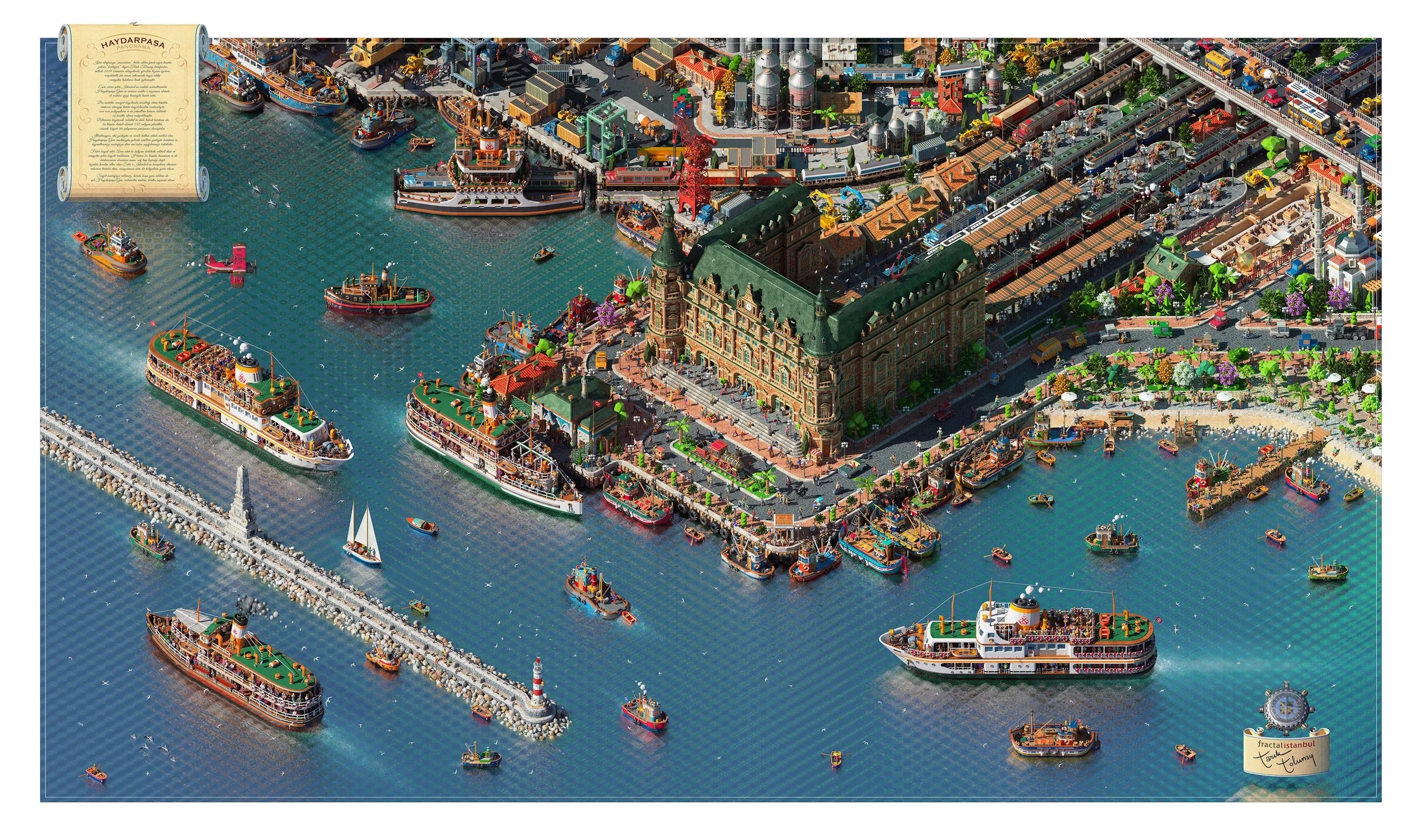How to Mint Your First NFT (Without the Headache)
So you’ve heard about NFTs when they took over the internet in 2021 and 2022, and after 2023 it felt like everyone forgot about them and you thought you missed the hype.
I’m here to tell you that you’re not late to the game at all. We’re actually just starting!
Maybe you want to experiment with selling your art online in a new way, or you’re just curious what this world is all about. Either way, you’re in the right place.
In this guide, I’ll walk you through the basics of minting your first NFT. By the end, you’ll have a clear sense of how it all works, what platforms to try, and what scams to avoid.
NFT by Wildy Martinez
Wait, What Even Is an NFT?
NFT stands for "non-fungible token." Sounds techy, but it just means a one-of-a-kind digital certificate stored on the blockchain. In simple terms: an NFT is a way to prove that your digital art is yours, and that someone else can buy or collect it.
The blockchain acts like a digital receipt book — public, permanent, and tamper-proof. When you mint an NFT, you're creating a unique entry in that receipt book that says: this specific image (or video or audio file) belongs to this person.
Collectors buy NFTs to support artists, build a collection, or resell later. You, the artist, can make money from the initial sale and earn royalties every time it resells. Pretty cool.
What Kinds of Digital Art Can Be NFTs?
Pretty much anything that can be uploaded as a file:
Illustrations
3D renders
GIFs
Short videos or animations
Audio-visual works
Generative art
AI-assisted pieces
You can take a high-resolution picture of your physical art like oil painting or sculpture and mint that digital file as an NFT, too. There are even interactive NFTs, though that’s more advanced. For your first one, keep it simple.
What You Need Before You Mint
A finished artwork
Make sure it’s polished and ready. Once it’s minted, you can’t swap the file.A digital wallet
You need a crypto wallet to connect with NFT platforms. MetaMask is the most widely used. It works as a browser extension or app.Some cryptocurrency
You’ll usually need ETH (Ethereum) or MATIC (Polygon) to cover gas fees (more on that in a sec). Some platforms are gas-free!A platform to mint on
There are tons of options. Here are a few good beginner-friendly ones:OpenSea (biggest marketplace, works with Ethereum and Polygon)
Zora (popular among artists, low fees, creator-owned)
Objkt (Tezos-based, great for affordable collecting)
Foundation (invite-only, more curated)
SuperRare (invite-only, more curated)
NFT by Lillian Yvonne Bertram
Step-by-Step: Minting Your First NFT
Let’s use OpenSea and Polygon as an example. It’s free to mint, no upfront gas fees, and widely used.
1. Set Up a MetaMask Wallet
Go to metamask.io and install the browser extension. Write down your seed phrase somewhere safe. This gives you access to your wallet.
*DO NOT LOSE YOUR SEED PHRASE. You’ll need it to log in on a new device. Don’t lose your NFTs just because you get a new phone. Been there, done that. Save it. Get a tattoo of it. I’m not kidding.
2. Add Some ETH or MATIC
For Polygon, you’ll need MATIC. You can buy MATIC through crypto exchanges like Coinbase and transfer it to your wallet. (Some platforms let you mint without crypto, but it’s good to have some just in case.)
Ethereum is widely accepted as the blockchain for creatives, so it’s good to have some ETH, too.
3. Connect Your Wallet to your NFT Platform
Log in to the NFT platform you chose, click the wallet icon in the top right, and connect MetaMask.
4. Create a New Collection
Collections help group your NFTs and give them a branded home. Add a logo, name, and description. You can edit these info later.
5. Mint Your Artwork
Click “Create” and upload your file (PNG, GIF, MP4, etc.)
Add a title and description
Choose the collection
Select "Polygon" as the blockchain to avoid gas fees
Set any properties or unlockable content (like a thank-you message or high-res download)
6. List It for Sale
After minting, hit “Sell”. You can choose a fixed price or auction. Set your royalty percentage (typically 5-10%) to earn from resales.
And that’s it — you’ve minted your first NFT! Yay!
Common Mistakes to Avoid
❌ Rushing the process
Don’t mint unfinished work. You can’t adjust it later. Make it something you’re proud of.
❌ Ignoring royalties
Platforms like OpenSea let you set royalties, but not all buyers honor them. Platforms like Zora use on-chain royalties, which are harder to bypass.
❌ Not promoting your NFT
Just minting isn’t enough. Share your work on social media, on Digital Arts Blog, and Discord servers. Tell the story behind the piece.
❌ Falling for scams
If anyone DMs you about buying your NFT, asking for your seed phrase, or offering “free exposure,” run.
Ana María Caballero’s poem Milk is minted as a single edition NFT
Tips to Stand Out
Add context. Use the description to explain your inspiration, process, or tools used.
Use tags. Think about what collectors are searching for (ex: #generativeart, #procreate, #3D).
Tell a story. Collectors often buy into your why, not just the image.
Collaborate. Work with musicians, animators, or poets. Cross-promotion helps!
What About Gas Fees and Blockchains?
Gas fees are the cost of processing transactions on the blockchain. Ethereum can get pricey, which is why many artists use:
Polygon (cheap, fast, eco-friendly)
Tezos (affordable, used on Objkt and fxhash)
Zora (layer 2, lower fees)
The art world is becoming more eco-conscious, so platforms using less energy are gaining traction.
Should You Try NFTs?
Only if you want to. NFTs are a tool, not the only way to sell digital art. Some artists love the creative freedom and community, others prefer traditional methods like print sales or licensing. Both are great.
But if you’re curious, minting one or two pieces is a low-stakes way to test the waters.
NFTs Are Far From Dead
NFTs opened up new possibilities for digital artists — ownership, royalties, discoverability. It’s a new creator economy that’s being created; which won’t dissolve in a day depending on virality or hype. At least in my opinion. Like anything else, making it in the NFT world takes time, storytelling, and consistency.
So don’t stress. Start small, stay curious, and focus on making great work. The rest will follow.
FRACTAL ISTANBUL - HAYDARPASA PANORAMA NFT by Tarık Tolunay

















